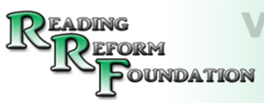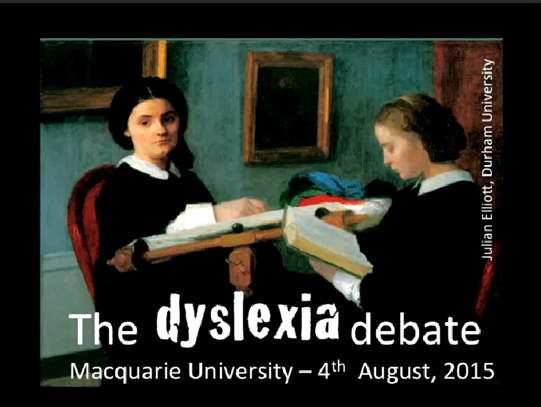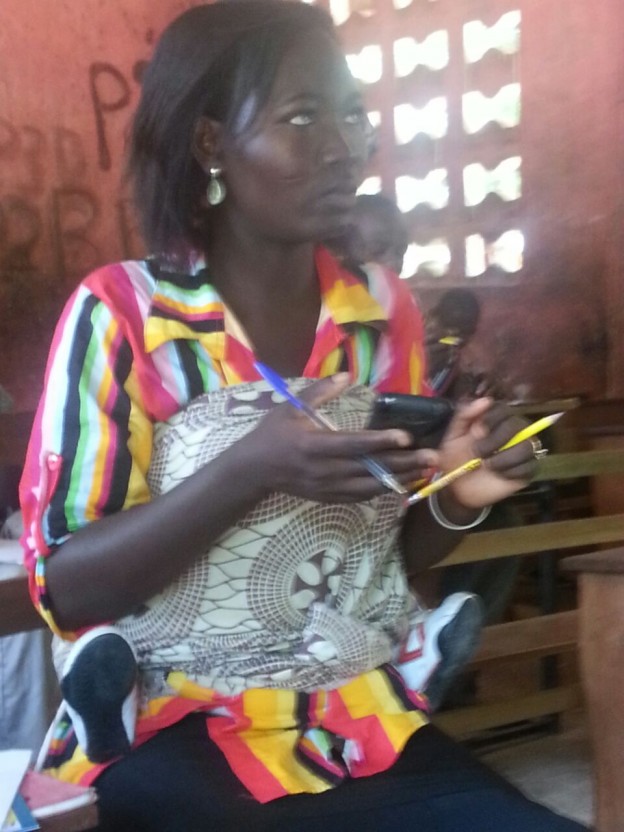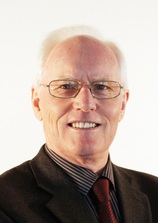Some children we teach imprint indelible memories. One such was Raymond. He was a ‘blitz of a boy’ fashioned in the mould of Charles Causley’s, ‘Timothy Winters’. For him, school was not always a pretty sight. During a story writing lesson, he asked: ‘‘Sir, how do you spell peace?’’ I said, ‘’Do you mean as in a piece of pie, Raymond?’’ He said, ‘’No. I mean like when ‘me’ dad says: turn that bloody telly off and let’s have a bit of peace.’’ This was almost 60 years ago when I was a ‘rookie’ primary teacher and Raymond was one of 40 children in my class of nine-year-olds.
While much has changed markedly for the better in primary education over the years it seems that peace has yet to break out over how best to teach young children to read and write. In the never-ending ‘Reading Wars’, the noise of battle is sometimes akin to those repetitious adverts on the ‘telly’ that numb the brain: once described by a teacher colleague as ‘stereophonic porridge — cold grey and coming at you from all directions’. For hardworking, dedicated primary teachers much of this debate must come over as a Tower of Babel, especially when they look to research for help only to find that it, too, often points in opposite directions.
On the face of it, two recent papers by Greg Brooks, seem to be another attempt to stir the porridge in Australia and in England. The first argues forcibly that Australia should resist the temptation to introduce a version of the Phonics Screening Check (PSC). The second is one of a brigade of papers in a recent book edited by Margaret Clark, a long-standing critic of the Reading Review (Rose 2006), who seems to be stuck fast in an unreconstructed, Plowdenesque view of primary education.
Australia is debating the value of a Phonic Screening Check for their schools and is wisely drawing upon rich seams of national and international academic expertise and professional practice to inform their decisions. This paper therefore focuses upon the papers by Brooks and Clark in the case of England. In passing, however, it is perhaps worth saying the PSC is turning out to be an exceptional initiative, not least, by providing a very strong incentive for schools and teachers to verify their judgements and keep children’s progress in phonics under review.
Since it was published, I have spent much time reminding critics, first, about the remit of our 2006 Review and, secondly, on explaining what it did not say to those inclined to believe everything they read in the press, as well as those with vested interests be they ideological, or commercial.
I agree with Greg Brooks in that many who take issue with the 2006 Review have either not read it or have chosen to ignore its key recommendations which, for example, set phonics in the context of a powerfully enriched primary school curriculum that prioritises literacy, with serious attention given to developing spoken language and attentive listening alongside reading and writing. ‘If they can’t say it they can’t write it’ has always seemed to me to be one of several obvious reasons for fostering ‘oracy’ from birth, as a precursor for literacy and much else. How many times and ways does the message that: ‘high quality phonic work is essential but not sufficient for teaching children to read’, need to be parroted before it sinks in?
I part company with Greg Brooks when he takes issue with the Reading Review on the grounds that it overstates the case for synthetic phonics and conflates it with systematic phonics. So, what does the Review actually say on that score? It says:
‘‘Research, inspection and leading-edge work of settings and schools may inform best practice. However, findings from different research programmes are sometimes contradictory or inconclusive, and often call for further studies to test tentative findings. While robust research findings must not be ignored, developers of national strategies, much less schools and settings, cannot always wait for the results of long-term research studies. They must take decisions, based on as much firm evidence as is available from a range of sources at the time, especially from replicable and sustainable best practice”
Greg Brooks applies a sleight of hand by ignoring the first, specific remit for the Review, notably, to make a judgement about: ‘What best practice should be expected of early reading and synthetic phonics?’
Even though the research in 2006 may have been inconclusive the requirement was to make a judgement, not to sit on the fence. Ten years on, I would argue that the research is now far from inconclusive, rather it amounts to an even stronger case for synthetic phonics.
By any reasonable definition ‘synthetic phonics’ is systematic, that is to say, it must be taught directly, regularly and incrementally according to a planned progression that takes full account of children’s different but developing abilities.
Moreover, ‘inconclusive’ seems to be an outcome to which educational research is particularly prone. What are teachers expected to do when research accrued over years at considerable expense comes to no conclusion and they have to teach something as crucially important as reading? One obvious response to that question is to take ‘proven practice’ (R. Slavin 2016) into account and that, too, was written into my remit as ‘best practice’.
Greg Brooks and one of his colleagues, Carole Torgerson had a different answer. If memory serves, having themselves already conducted a review of research on phonics, they wanted to spend another four years at considerable expense on a randomised control trial designed to settle the matter on synthetic phonics. This was because their review had found in favour of systematic phonics but was ambivalent about the primacy of synthetic phonics over ‘analytic phonics’. In my view and that of other members of our Advisory Group so doing risked kicking the can down the road for another four years thus paralysing action in schools and teacher training.
Contrary to Greg’s reflections on the run up to my Review, we spent a great deal of time, especially in schools, observing the teaching of reading, including a very helpful visit to the famous Clackmannanshire Project. We saw most, if not all of the leading-edge, published reading programmes in action and attended teacher training events. We also had the benefit of an HMI survey designed to inform the Review, plus numerous meetings of stakeholders, such as, parents. Though unacknowledged by Clark and Brooks, all of this is set out in the Review.
Prior to the Review I had also taken part in HMI exercises reporting on what turned out to be a flawed ‘Searchlights’ model of reading in England’s National Literacy Strategy, as well as directly observing the teaching of reading in projects overseas, including the USA and Europe.
In consequence, we reported that:
‘Having considered a wide range of evidence, the review has concluded that that the case for systematic phonic work is overwhelming and much strengthened by a synthetic approach the key features of which are to teach beginner readers:
- grapheme/phoneme (letter/sound) correspondences (the alphabetic principle) in a clearly defined, incremental sequence
- to apply the highly important skill of blending (synthesising) phonemes in order all-through a word to read it
- to apply the skills of segmenting words into their constituent phonemes to spell
- that blending and segmenting are reversible processes.’
In the case of phonic work, it is very clear that for any programme to be successful, first and foremost, it must be systematic. That is ‘square one’. This much at least seems to be common ground with Greg Brooks but less so it seems with Margaret Clark.
Judgements about synthetic phonics therefore covered one, albeit hugely important, aspect of the remit.
Greg Brooks admits that he is theoretically disposed to accept synthetic phonics as the front runner when compared to ‘analytic phonics’. He writes:
‘I was convinced then, and still am, that theory suggests that synthetic phonics is more coherent than analytic phonics as a strategy for young learners working out unfamiliar words.’
So, the question seems to be: ‘Synthetic phonics works in practice but does it work in theory?’ Fair dues – Greg is working on it.
He will no doubt take on board the spectacular success of England shown in the latest PIRLS data as reported by the BBC: ‘Northern Ireland and England are in the top 10 of the world’s best primary school readers in global rankings.’
And, reflect on the comments about the Phonics Check in the DFE report – Progress in International Reading Literacy Study (PIRLS) National Report for England December 2016:
‘The present PIRLS findings provide additional support for the efficacy of phonics approaches, and in particular, the utility of the phonics check for flagging pupils’ potential for lower reading performance in their future schooling. Additionally, the correlation between the phonics check and PIRLS performance also potentially bodes well for England’s pupils’ average performance in future PIRLS cycles, as 58% of pupils met the phonics check expected standard in 2012, whereas this has increased to 81% in 2017. Pupils who met this standard in 2012 had an average PIRLS 2016 performance of 587, compared to the overall average of 559.’
Perhaps we should remind ourselves that wars have winners and losers and in this phoney battle over phonics; the risk is that the real losers will be children, especially those who struggle to learn to read and of whom much more needs to be said than can be covered in this paper.
Today, as I write, the BBC is commenting on this year’s imminent OFSTED Annual Report, as follows:
- More than 100 schools have not improved in the last 10 years, education watchdog Ofsted is expected to say.
- The annual report by the Chief Inspector of Schools being released on Wednesday is expected to show that 130 schools have failed to record a “good” inspection since 2005.
- It is reported that of the 20,000 schools in the country, 500 of those for children of primary age and 200 for over-11s have failed to make the grade.
- However, 90% of all primary schools and nearly 80% of all secondary schools are rated good or outstanding, the report will say.
Clearly the rising tide of reading success in England is a cause for rejoicing but it is not lifting a worrying minority of boats that are firmly stuck in the mud. We need to keep working at it. Given that we know so much about ‘what works’ to secure high standards of reading in schools – perhaps we should now pay more attention to that other crucial piece of the territory and ask: what works to best effect in teacher training?
Jim Rose
13.12.17
For further information and discussion, please visit the forum here.








 The Rt Hon Theresa May MP
The Rt Hon Theresa May MP










